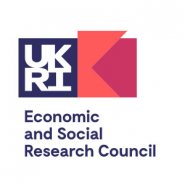
Gender Pay Gaps in Medicine
Start date
October 2023End date
March 2024Team

Principal Investigator
Professor Carol Woodhams
Professor of Human Resource Management
Biography
I joined Surrey Business School in 2018 after nine years at the University of Exeter Business School. Previous to that I have held posts at the University of Plymouth and Manchester Metropolitan University.
My research is interdisciplinary and theoretically grounded in psychology, management and sociology. I research a number of subjects bound by an interest in labour market disadvantage. Currently I am best known for my work that progresses the understanding of causes of pay gaps and pay inequality at the firm level. My latest papers are grounded in the analysis of organisation payroll data extracting learning about single-dimension and intersectional pay gaps / pay inequality using Blinder-Oaxaca decomposition methods. I show that women, and intersectional women and men are hindered in their prospects for equal pay by reward structures and their application by organisation elites.
Previously I have researched Chinese female managers and careers, disability equality plus disability studies methodology, diversity management, equal opportunities in SMEs and financing small business. My research is based in practice and applied in nature.I have published widely on these topics including articles in Human Resource Management, the Journal of Social Policy, Scandinavian Journal of Management, Human Resource Management Journal, and British Journal of Industrial Relations. Prior to an academic career I was a manager of people and operations in the hospitality sector and practiced in organisations in the UK and Australia. I have been a National Examiner for “Designing and Delivering Training” and Chartered Fellow of the Chartered Institute of Personnel and Development (CIPD) and remain an External Moderator for them. I have been a consultant, author and adviser to the CIPD on the re-launch of their professional standards.
I enjoy applying my research skills to provide insight for individual employers - largely NHS Trusts and UK HE institutions - diagnosing patterns in wages between men and women, and further at the level of dual and multiple characteristics in order to co-develop best practice reward strategies to overcome pay gaps and pay inequality. My work results in a report and ongoing coaching relationship delivering advice on remedial strategies to eliminate pay gaps. It was recognised with the award of a high-profile national project - Overcoming Pay Gaps in Medicine sponsored by the Department of Health and Social Care due for a COVID-delayed launch in 2020. I continue to conduct research on inequalities in the health sector.
Project Summary
The number of women in medicine has risen exponentially every year since 2009. Despite the figures, the constraints of the gender pay gap remained palpable. In 2020, Professor Carol Woodhams and Dame Jane Dacre and a team from other universities published Mend the Gap, the ‘Independent Review into Gender Pay Gaps in Medicine’. This ground-breaking research spanned a decade, analysing records of 86,000 trust doctors, 16,000 GPs and 4,500 clinical academics, making it the largest study into the gender pay gap in any industry, here in the UK.
This ESRC IAA project has funded an expert analyst to look at the findings of the Mend the Gap study, alongside recent data provided by the Department of Health and Social Care, to conclude whether or not the gender pay gap for women in medicine is closing. Professor Woodhams has presented findings to the Department of Health and Social Care, that the gender pay gap for women in medicine in the UK is indeed closing, and this intelligence is referenced and now informs the response from Government to the Doctors and Dentists Pay Review Body, in the ongoing pay disputes for medical staff. By measuring this across all medical doctors in England, Professor Woodhams has been able to prove the effectiveness of the 2020 review and highlight areas of progress and good practice.
The impact already been felt from the work of Professor Woodhams and the team is sizeable, and we are thrilled that ESRC IAA funding was able to help evidence and further galvanise this impact, so that the team have been able to influence and benefit women working in medicine for years to come. It is hoped that further funding will be leveraged to continue monitoring and evaluating how changes to local policy around the gender pay gap are being addressed in individual NHS Trusts across the UK.
Closing the gender pay gap in medicine is not just beneficial to women, it benefits all genders and identities of practitioners and staff as well as their patients. Through the research of Professors Woodhams and Dacre, it seems that whilst there is still work to be done, that divide is narrowing.
"We heard from doctors during the course of the research, we led on the gender pay gap in medicine, that part-time doctors who reached the level of excellence sufficient to be awarded a national clinical excellence award, judged alongside full-time staff, only received a pro-rata amount of their reward. The majority of these doctors are women." - Professor Carol Woodhams



